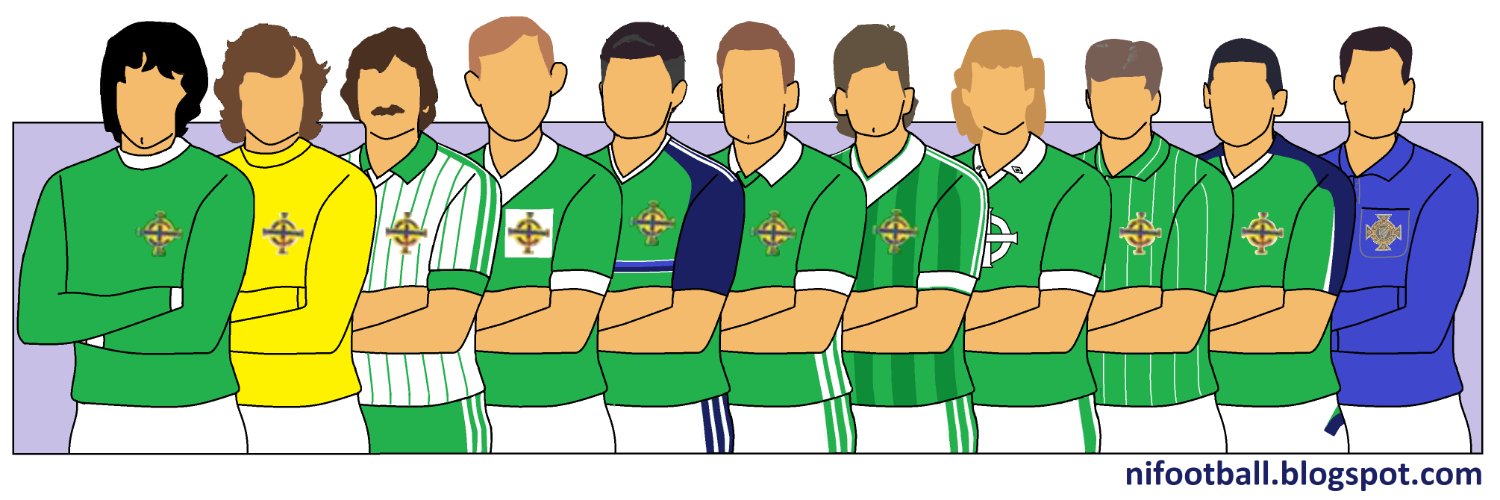Venue
---- - 001 - 002 Racecourse, Wrexham (WAL)
|
Type |
Home |
Knock Ground Upper
Newtownards Road Bloomfield,
BELFAST, IRELAND |
|||||||||||
|
Record |
0% points / 0% wins |
1882 |
|||||||||||
|
Pl |
1 |
W |
0 |
D |
0 |
L |
1 |
F |
0 |
A |
13 |
||
|
Home Club(s) |
|
|
|||||||||||
|
Opened |
1881-1892 |
||||||||||||
|
Capacity |
2,500+ [1882 - “destitute of stands,
embankments and turnstiles. The finest ‘Grand Stand’ was the railway
embankment, or the roadway separated from the playing field by a small
hedge.”] |
||||||||||||
|
Major
Events/ Matches |
|
||||||||||||
|
Other Uses |
Albion Rugby
Club (up to 1891-92 before being built over) |
54.596111, -5.882222 (approx.) |
|||||||||||
Ireland Matches at Bloomfield
|
# |
Date |
Opponent |
Result |
Comp |
Att. |
|||
|
1 |
18/02/1882 |
England |
L |
0 |
- |
13 |
FR |
2,500 |
It is frustrating that the exact location of the first international fixture played in Ireland is still unknown!
Bloomfield, aka the Knock Ground, was located near to the junction of the Upper Newtonards Road and the Beersbridge Road, close to Cyprus Avenue (that would later be made famous by Van Morrison).
Bloomfield, aka the Knock Ground, was located near to the junction of the Upper Newtonards Road and the Beersbridge Road, close to Cyprus Avenue (that would later be made famous by Van Morrison).
Most of the details relate to Bloomfield Railway Station (shut in 1950) on the Belfast and County Down Line which had only recently opened for a rapidly expanding Belfast in 1879:
- "the best view was obtained from the adjacent railway embankment or roadway."
- "the entrance gate to the ground was beside Bloomfield Railway Station."
- "situate at Bloomfield on the County Down Line and within five minutes walk of the Mountpottinger tramway terminus."
The ground was used up to 1891-92 by Albion Rugby Club when it was then built over.
An article from the Newsletter on 18th February 2022 (the 140th anniversary of Ireland's first international)
"[John] Sinclair [IFA treasurer and Knock player] arranged with the Belfast & County Down Railway for special trains to be run between Queen’s Quay and Bloomfield on the day of the match.The choice of Bloomfield as the venue prompted criticism from an anonymous correspondent to the Belfast News-Letter. The writer considered that the grounds at Cliftonville were ‘obviously more suitable and convenient’ than those at an ‘out-of-the-way place like Bloomfield’, and predicted that gate receipts would be disappointing as a result. This prompted two replies in defence of the chosen ground, noting the availability of public transport in the form of tramcars and trains.
The Bloomfield ground was a new one – it had been acquired by the Knock football and lacrosse clubs in May 1881 – but was very basic. It had a pavilion, but no stands or turnstiles, and the best view was apparently obtained from an adjacent railway embankment or the roadway. A contemporary account refers to it as being enclosed by a wire fence, and one from much later mentions a hedge. Its precise location is unclear, though we know that the entrance gate was beside Bloomfield railway station, which means it was on the south-eastern side of the Beersbridge Road, close to the Upper Newtownards Road. It was never used again as an international venue, the Ulster Cricket Ground at Ballynafeigh being the preferred choice for the next number of years. It hosted the 1883 Irish Cup final and a Charity Cup semi-final in 1884, but nothing of note after this. Its last use was by the Albion rugby club in the 1891–92 season before being built over."
If you can help, please get in touch!
Notes:
(Northern) Ireland have also played at two away venues called Bloomfield, against England in Blackpool and Israel in Tel Aviv.
Links:
Credits:
All the contributors to this Twitter thread:
Curious whereabouts the ground was in Bloomfield? Any clues.
— neal.rey (@NealRey) February 19, 2022





Comments